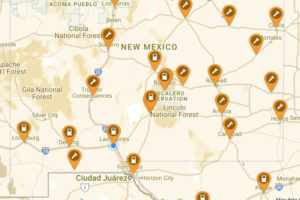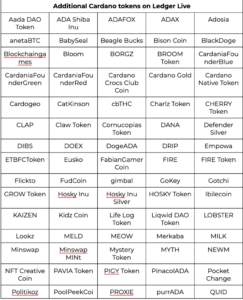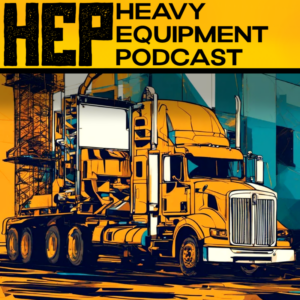The topic I’m going to cover in this article will sound familiar to people who’ve seen a lot of Christmas movies. In the famous Christmas movie Home Alone, a thief poses as a police officer to gather intelligence about homes. By acting as an authority figure, he is able to determine who will be out of town, and when.
Between what he learns impersonating a cop and what he learns from observation, he’s able to figure out exactly when and where the houses will be unprotected, so he can work with an accomplice to steal whole vanloads of valuables from the houses, while pretending to be plumbers.
As most of us know, they got a big surprise when their intelligence turned out to be wrong. A family accidentally left a child behind, and the thieves decided to rob it anyway. After all, he’s just a kid, right? What they didn’t know was that the kid was both a genius inventor and a decent tactician (and this is a mistake they make at least twice in the movie series).
It turns out that US corporations have taken a page out of the Harry and Marv playbook, but instead of gathering the intelligence themselves, the real cops gave the polluters all of the information they’d need to rip off the system.
A Big Pollution Testing Scam
According to a report at The Economist, that’s exactly what’s going on with EPA pollution testing. Every year, it publishes a list of dates that it expects data from state and local governments on pollution levels. The dates come every six days, like clockwork. In theory, this gives polluters the ability to know when the testing is going to happen and then reduce or stop their work to fly under the radar.
But the ability to do that doesn’t necessarily mean that people are actually gaming the system, so researchers looked at satellite data to see what the pollution looked like on days that the EPA wasn’t looking. It turns out that NASA has been looking at the concentrations of aerosol particles from space for years, and the data was readily available to compare to the EPA’s data.
What they found confirmed what some suspected: pollution does drop on days it’s monitored compared to days it’s not. Plus, stations that monitor continuously have lower pollution all the time than the stations that only check once a week. On top of that, if a station closed down and quit monitoring at all, pollution stayed higher 7 days per week. Between all of that, it’s pretty clear that polluters know when the testing is going to happen and adjust accordingly.
How much the pollution differs on test days compared to non-test days depended on several factors. Where there’s mining, paper mills, and lumber mills had the worst particulate pollution on non-test days. The consequences of getting caught, in terms of fines, also correlated with worse off-day pollution. If fines are higher, people didn’t take as big of risks.
We See Things Like This A Lot
People tend to be pretty good at finding ways to game the system.
With cars, when we put the responsibility for pollution controls on manufacturers, and don’t check on the cars later, some people game that system and modify their cars to pollute more. Sure, some people do it for performance and occasionally even gas mileage reasons (this is less of a problem with fuel injection), but other people intentionally modify their cars to make extra smoke. Often, it’s done by people who want to direct that “rolled coal” onto people for fun.
They saw their opening and went for it.
I’ve seen plugin-hybrids go much the same way. When I owned a Chevy Volt, I once let the gas tank get low and then just used it like an EV for three months before I needed to put gas in it again. It was really doing what it was supposed to do (reduce emissions 90%+, still be usable on road trips without charging infrastructure). But, some savvy used car dealers are finding many, many Volts that never got plugged in, and would therefore have minimally-worn battery packs.
Why would someone buy a Volt without ever plugging it in? To get access to the carpool lane or to get the $7500 tax credit without having to actually drive an EV.
They saw the opening and went for it.
Closing Openings Without Being Overly Harsh
I know some readers would say that the EPA pollution checks should happen every day, and that people’s cars should be pollution checked annually, or more often. Some people think plugin-hybrids should be banned along with normal gas cars to avoid this abuse.
The problem is that this can’t happen everywhere. While these policies are either already in the planning stages or are very likely in some places, don’t expect to see strict inspections or gas car bans in conservative US states or in other places where they’re not supported. So, whether we want those strict policies or not really isn’t relevant.
What we really need is for federal policy in the United States to be a little more thought out. Pollution monitoring shouldn’t be so easy to game. People “rolling coal” should be ticketed without going through the expense of hassling the other 99.9% of vehicle owners who don’t modify anything. Tax credits that include plugin-hybrids should require that the vehicle go through a minimum percentage of electric miles.
In other words, with some minimum thinking, we can close the gaps in policy without making life hard for the people who aren’t playing stupid games.
While we’re moving toward a market where most or all new vehicles are EVs, renewable energy replaces pollutants, and we do whatever we can about particulates, we do need to keep in mind that people will find ways to game a system if it isn’t well-designed.
We can’t predict every possible abuse or game people will play, but we can at least try to put ourselves in the shoes of the people who don’t like a policy and try to think about how they’ll want to abuse things.
Featured image: EPA researchers test air monitoring equipment. Photo by the US EPA (Public Domain).
Appreciate CleanTechnica’s originality? Consider becoming a CleanTechnica Member, Supporter, Technician, or Ambassador — or a patron on Patreon.

Source: https://cleantechnica.com/2021/11/10/nobodys-looking-lets-pollute/
- 7
- access
- accomplice
- Advertise
- All
- Annually
- article
- authority
- Bans
- battery
- buy
- car
- cars
- caught
- charging
- Checks
- child
- Christmas
- cleantech
- Cleantech Talk
- closed
- content
- cops
- Corporations
- credit
- Credits
- data
- Dates
- day
- Drop
- Electric
- Emissions
- energy
- equipment
- EV
- expects
- family
- Federal
- Figure
- Fuel
- fun
- game
- Games
- gaming
- GAS
- good
- Governments
- Guest
- Home
- houses
- How
- HTTPS
- image
- information
- Infrastructure
- Intelligence
- IT
- List
- local
- looked
- Making
- Market
- Mining
- monitoring
- months
- movie
- Movies
- Nasa
- Officer
- Other
- owners
- Paper
- Patreon
- People
- performance
- planning
- Play
- Plugged
- podcast
- Police
- policies
- policy
- public
- radar
- readers
- reasons
- reduce
- renewable energy
- report
- satellite
- savvy
- Series
- SIX
- So
- Space
- State
- States
- Supported
- surprise
- suspected
- system
- tax
- tax credit
- test
- Testing
- Thinking
- time
- top
- United
- United States
- us
- vehicle
- Vehicles
- week
- WHO
- words
- Work
- year
- years
- youtube










